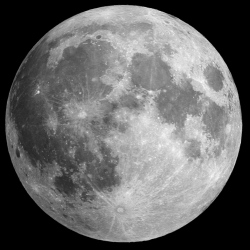
The race to put a privately funded spacecraft on the Moon has just five teams left in the competition. The surviving groups all met an end-of-2016 deadline to obtain launch contracts, and these have now been verified by the organisers of the Google Lunar X-Prize. To stand a chance of winning the $20m purse, however, the teams will need to leave Earth by 31 December.
The winner will be the first to roam at least 500m, and stream hi-res imagery.
The remaining teams are:
SpaceIL (Israel): The non-profit has secured a payload berth on a SpaceX Falcon 9 rocket. SpaceIL’s surface probe will be a hopper. The group’s stated goal is to make an educational impact and to create an "Apollo Effect" for the next generation in Israel.
Moon Express (US): The American team is also building a hopping craft. It has a vision to exploit the resources of the "eighth continent", and has signed a contract with US-New Zealand company Rocket Lab to use its Electron vehicle on three occasions between 2017 and 2020.
Synergy Moon (International): This team is made of up individuals from over 15 countries, and plans to use a Neptune 8 rocket supplied by California aerospace company Interorbital Systems. It will use a rover to traverse the lunar surface.
Team Indus (India): The Indian outfit has signed a commercial launch contract to ride one of the nation’s Polar Satellite Launch Vehicles (PSLV). Team Indus’s spacecraft is designed to nestle inside the nosecone of the PSLV.
Hakuto (Japan): It has an agreement with Team Indus to share space in the PSLV. Hakuto has been developing a design that sees two rovers tethered together. The configuration, it believes, would eventually make possible the exploration of holes on the lunar surface thought to be caves or “skylights” into underlying lava tubes.
In confirming the five teams still in with a crack at the grand prize, the X-Prize organisers also announced on Tuesday that a $1m Diversity Prize would be split among all 16 groups that had been competing up to this point.
The hope is that teams dropping out will continue with their work to develop low-cost solutions to space exploration.
The Google Lunar X-Prize was initiated in 2007 and had to have its timeline extended when competitors struggled to raise investor funds in the aftermath of the financial crash. But Chanda Gonzales-Mowrer, the senior director at the Google Lunar X-Prize, said she was now confident the race to the Moon was entering its exciting end-stage.
"In entering the final stretch, we wanted to see and prove that these teams were on manifested launches. That’s important because it shows they must have money in place because they’re now having to make payments to those launch providers," she told BBC News.
"That gives us a lot of confidence. And we’re now working with the teams on developing their mission profiles and in setting up the process to judge them."
To give the teams a bit more scope, the organisers have adjusted the current competition guidelines requiring that the mission be “completed” by 31 December, 2017, to be merely "initiated" by that deadline instead. In other words, they must have left the launch pad by the end of the year.
The X-Prize Foundation administers a number of competitions aimed at incentivising technological breakthroughs in a range of fields, including climate, healthcare, education and exploration.
In 2005, a privately funded rocket plane, SpaceShipOne, won the Ansari-funded X-Prize by completing two flights above the Earth’s atmosphere inside a week.
The vehicle’s technology now forms the basis of a spaceliner being developed by entrepreneur Sir Richard Branson and his Virgin Group.
